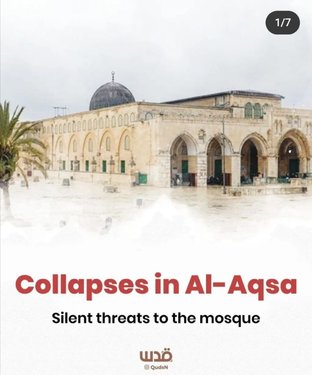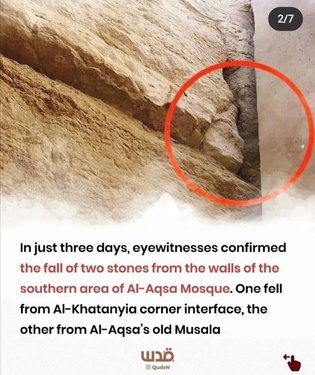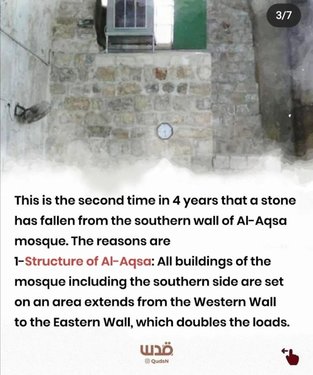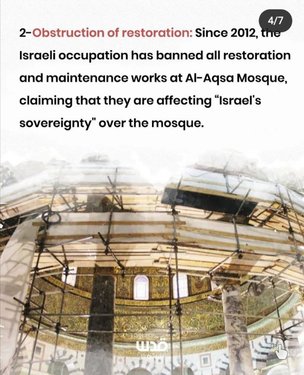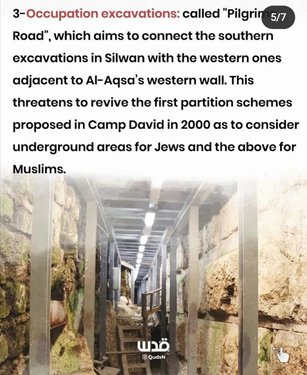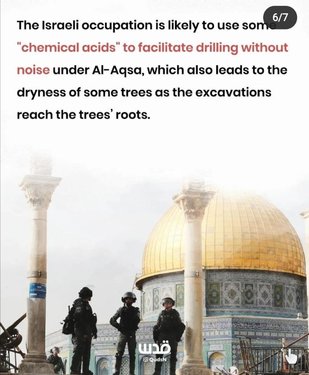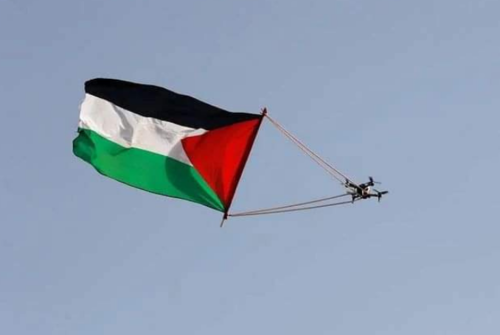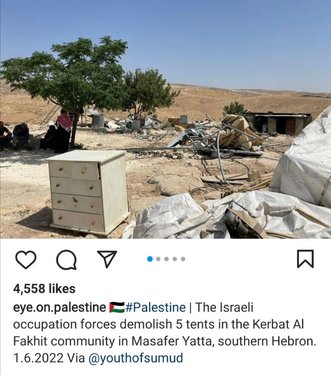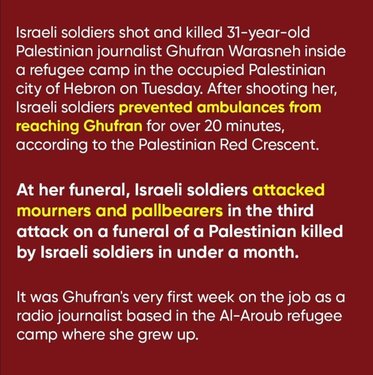-
Posts
8,465 -
Joined
-
Days Won
773
Content Type
Profiles
Forums
Events
Everything posted by ummtaalib
-
Wednesday the 22nd June 2022/ 21st Zul Qa’dah 1443, marked the sad demise of Sheikh Mahmud Effendi (Rahimahullah), one of the most well-renowned scholars of Turkey. Sheikh Effendi dedicated his life to the re-establishment of Islam in Turkey and he was the means that Allah Ta’ala used for bringing millions of the Turkish population back on the path of Deen. Sheikh Effendi became a hafiz at the tender age of six. He began studying Arabic and Persian at first, and then went on to study the Islamic Sciences and graduated at the young age of sixteen. Sheikh Effendi was appointed Imam of the Ismail Agha mosque in Istanbul in 1954, where he remained until he retired in 1996. Upon the demise of his spiritual mentor, Shaikh Ali Haydar Effendi, he took upon himself the task of spiritual guiding and advising his community to live their life in the obedience of Allah and upon the beloved teachings of Nabi (sallallahu’alayhi wasallam). In addition to travelling to every region in Turkey, Sheikh Effendi also travelled to the Middle East, Central Asia, India and Europe in an attempt to call people to the beautiful religion of Islam and the truth. Whenever possible, he would visit Makkah and Madinah every year to perform Hajj, and once a year to perform Umrah. In April 2011, he performed a spectacular Umrah, together with over 50,000 of his followers – something like this had not been witnessed for centuries. Sheikh Effendi’s outstanding knowledge of the Sunnah, his profound knowledge of the sciences of the Shariah and his Islamic demeanour as a whole made great impressions on both the scholars and the laymen of the Islamic world whom he met during his journeys and on their visits to him. The most notable work of Sheikh Effendi is the work of translating Qur’an to into the Turkish language, named Qur’an Majeed. Another voluminous work by Sheikh Effendi is the Tafseer of the Qur’an in Turkish named Rouhul Furqaan. May Allah Ta’ala accept Sheikh Effendi’s efforts in the service of Islam and grant that his legacy of knowledge remains in perpetuity as a continuous reward for him. May Allah Ta’ala grant him the highest of stages in Jannatul Firdaus and admit him in the company of His chosen servants, Ameen. Jamiatul Ulama (KZN) Council of Muslim Theologians
-
This series of articles are taken from lifewithallah
-
18: Always Be Mindful That You Are Talking To Allah & That He Is Responding To You In ṣalāh, you are conversing with your Lord. As you talk to Him, He responds to you. Being mindful of this will increase your khushūʿ in ṣalāh. The Messenger of Allah ﷺ said, “Indeed, when one of you stands to pray, he stands up and privately converses with his Lord. Therefore, he should be careful in how he converses with Him” (Ḥākim). Allāhu Akbar! Ṣalāh is your chance to privately converse with your Lord, your Master and your Creator. This is demonstrated beautifully in the following ḥadīth: The Messenger of Allah ﷺ said, “Allah, the Most High, said, ‘I have divided the prayer (i.e. the Fātiḥah) between Myself and My slave equally and My slave shall have what he asked for.’ Therefore, when the slave says, ‘All praises and thanks are due to Allah, the Lord of the worlds,’ Allah says, ‘My slave has praised Me.’ When he says, ‘The All-Merciful, the Very Merciful,’ Allah says, ‘My slave has extolled Me.’ When he says, ‘Master of the Day of Judgement,’ Allah says, ‘My slave has glorified Me.’ (In another narration, he says, ‘My slave has entrusted his affairs to Me.’). When he says, ‘You Alone we worship and You Alone we ask for help,’ Allah says, ‘This is between Me and My slave and My slave shall have what he asked for.’ When he says, ‘Guide us to the Straight Path, the Path of those whom You have favoured, not of those who incur [Your] anger, nor of those who have gone astray,’ Allah says, ‘This is for My slave and My slave shall have what he asked for’” (Muslim). Imagine this! Each time you read an āyah, Allah responds to you. Though you may be a weak, sinful and broken slave, Allah (ʿazza wa jall) listens to you! Not only does He listen, but He responds. Continuous awareness of Allah being present, listening and responding will increase your khushūʿ in ṣalāh. Ibn al-Qayyim (raḥimahullāh) said, “How extreme is the delight and happiness of the slave when his Lord says ‘My slave’ three times. By Allah, if the hearts were not clouded by the smoke of desires and lusts, they would erupt from joy and delight when their Lord, Creator and God says, ‘My servant has praised Me, My servant has extolled me, My servant has glorified Me.’” Once, the Messenger of Allah ﷺ said to Ubayy b. Kaʿb (raḍiy Allāhu ʿanhu), “Indeed Allah has commanded me to recite the Qur’ān to you.” Ubayy asked him, “Did Allah mention me to you by my name?” The Messenger ﷺ replied, “Allah mentioned you by your name.” Upon hearing this, Ubayy started crying (Bukhārī). On hearing that Allah had mentioned him by name to His Prophet, Ubayy was overwhelmed with joy. Similarly, you should feel deep happiness and privileged to have Allah call you “My slave”. To be in direct conversation with the King of kings is truly a privilege. Bakr b. ʿAbdillāh al-Muzanī (raḥimahullāh) said, “Who is like you, O son of Ādam? If you wish to enter upon your Master without permission, you can do so.” He was asked, “How so?” He replied, “By perfecting your wuḍū and entering your place of prayer, you have entered upon your Master to speak to Him without any intermediaries.”
-
The Best Days Of Your Life – Journey To Allah In The Days Of Dhul Hijjah From His infinite mercy, Allah has made certain periods of time superior to others. In these periods, He multiplies the rewards of good deeds and forgives abundant sins. The first 10 days of Dhul Ḥijjah are amongst these special periods. Unlike Ramaḍān, this season of worship is often overlooked and neglected by many of us. The Messenger of Allah ﷺ however described these days as the best days in the sight of Allah (Ibn Ḥibbān). The subsequent three days are also of great significance: days of eating, drinking and remembering Allah. ‘The Best Days of Your Life’ is a short book compiled to help you make the most of these blessed days. The book gives a detailed explanation on: The virtues of these blessed days How to deepen your connection with Allah The Day of ʿArafah The significance of qurbānī The Days of Tashrīq We ask Allah to make this book is a means of cultivating an atmosphere of worship and dhikr in our homes and communities in the blessed month of Dhul Ḥijjah. DOWNLOAD NOW
- 1 reply
-
- 1
-

-
Moved to "Madhab & Taqleed"
-
17: Remember Death & The Hereafter In & Outside Salah Whenever you stand to pray, pray as though this ṣalāh is your final ṣalāh. The Messenger of Allah ﷺ said, “Remember death in your ṣalāh because when an individual remembers death in his ṣalāh, he is more likely to perfect his ṣalāh. And pray the ṣalāh of an individual who thinks he is not going to be able to perform another prayer” (Daylamī). Whilst praying ṣalāh, imagine that you are standing before Allah (ʿazza wa jall) and your reckoning is about to take place. Imagine you are on the Ṣirāṭ (the bridge): try to visualise Paradise in front of you and the Hell-fire beneath you. During congregational prayers, try to visualise yourself on the Day of Judgement when you are standing in front of Allah (ʿazza wa jall) as He says, “And they will be presented before your Lord in rows…” (18:48). Allah (ʿazza wa jall) says, “And seek help through patience and prayer, and indeed, it is difficult except for those who have khushūʿ; those who are certain that they will meet their Lord and that they will return to Him” (2:45-6). This āyah states that in order to enjoy khushūʿ, you must firmly believe that you will meet Allah (ʿazza wa jall). To attain khushūʿ, strengthen your īmān in the hereafter and in meeting Him. Develop the yearning (shawq) and eagerness to meet Him and see Him in Jannah. Death Remembering death is vital to eliminate the love of this world from our hearts and getting closer to Allah. The Messenger of Allah ﷺ said, “Frequently remember the destroyer of pleasures” i.e. death (Tirmidhī). An effective way to remember death is to visit graveyards. The Prophet ﷺ said, “I used to forbid you from visiting graves, but now go and visit them; for this softens the heart, makes the eyes weep and reminds one of the Hereafter” (Ḥākim). Whilst visiting the graveyard, Imām al-Qurṭubī (raḥimahullāh) advises one to ponder and think about the lives and deaths of those who have gone. Reflect on how they achieved their worldly ambitions and gathered wealth, but were then cut off from it all. It is no longer of any use. Consider how the earth has wiped away the beauty of their faces; how they have disintegrated in their graves; and how their wives have become widows and their children orphans. Reflect on the folly of being deceived by material means, relying on good health and youth, and attaching oneself to entertainment and leisure. Reflect on the inevitability of ending up where they have ended up. Ponder on the state of the deceased: his legs are destroyed, his eyes have liquified, the worms have eaten his tongue, and the earth has consumed his teeth (adapted from al-Tadhkirah). It was as though he could see Hell-fire burning and raging in front of him, whilst its inhabitants cry out, “‘Lord, let us out, and we will do righteous deeds, not what we did before!’ – ‘Did We not give you lives long enough so that whoever wanted to be mindful could have done so? The warner came to you, now taste the punishment.’ The evildoers will have nobody to help them” (35:37).
-
Success in this world is directly related to the strength of your relationship with Allah Ta’ala. The further one is from Allah Ta’ala and the teachings of Nabi Sallallahu alayhi wa sallam, the less likely one is to achieve success in this world and, even less likely to achieve success in the hereafter. It is necessary for us to reflect upon our Islamic teachings and become a highly successful Muslim youth. Here are seven habits which are essential for a Muslim youth to be highly successful, derived from the Qur-aan and the teachings of Nabi Sallallahu alayhi wa sallam. 1. BE TRUTHFUL Being truthful is the greatest quality of a Muslim. Nabi Sallallahu alayhi wa sallam was known as As-Saadiq (The Truthful) even before he became a Nabi. The highest position on the Day of Qiyaamah will be afforded to those who are truthful. Many a times we feel it difficult to speak the truth especially when we make a mistake. We worry over whether or not to disclose exactly what happened. We are often afraid that if we speak the truth about what we have done or said, we will be in trouble with our parents or friends. What we forget is that Allah Ta’ala knows exactly what took place, whether the people around us know or not. A person is immediately relieved when he speaks the truth even if he will be punished for what he did. One who speaks the truth is always respected by people whereas a liar is always disgraced in the sight of people. He will have to keep on lying to cover up for his first lie. Rasulullah Sallallahu alayhi wa sallam has said, “Truthfulness leads to righteousness, and righteousness leads to Jannah. And a man keeps on telling the truth until he becomes a truthful person. Falsehood leads to Fujoor (wickedness, evil-doing), and Fujoor leads to Jahannam, and a man may keep on telling lies till he is written before Allah as a liar.” (Sahih Bukhari) 2. BE TRUSTWORTHY Are you considered a trustworthy person? Nabi Sallallahu alayhi wa sallam was known in Makkah to be the most trustworthy person. If you want to progress in life you have to become trustworthy and reliable. You can read in the beautiful biography of our Nabi Sallallahu alayhi wa sallam how people used to entrust him with their valuables, knowing that upon their return they would find their valuables safe and unharmed. His personal and business practices were commendable to such an extent that he was known for it in his community. Even before he became aware that he was the Nabi of Allah Ta’ala, he was known as the one who is most truthful and trustworthy. 3. HAVE TAQWA Perhaps the most difficult challenge while passing through youth is to restrain oneself from one’s evil desires. Our success in life depends to a great extent on how well we are able to restrain ourselves from what is impermissible. Shaytaan’s goal is to make man a slave of his desires. To become a highly successful Muslim youth, that is, a youth deserving of the greatest fortune, it is important that you develop self-restraint. How wonderful it will be if in your old age you can look back at your life and say to yourself, “All praise is due to Allah Ta’ala that I did not succumb to my desires and instead adopted Taqwa." 4. BE SYSTEMATIC AND ORGANISED A Muslim youth must be systematic and organised in everything that he does. We should never get into the habit of doing things haphazardly. If we are entrusted to do some work by our elders, we should make sure it is done correctly and respectably. Nabi Sallallahu alayhi wa sallam liked people to be organised and systematic in what they did. He praised those Sahaabah (radiyallahu anhum) who were organised in their work. 5. BE FOCUSED A Muslim youth must always be focused on what he is doing. One should never allow his mind to wander around and day dream. This then takes his focus away from his goals. Developing the habit of being focused ensures that you are awake, alert, and totally motivated to work on and complete the task at hand, whatever it may be. Being distracted by video games and constantly changing scenes on television shows, makes one unable to concentrate and focus. Among the best ways to develop focus is to perform ones salaah with deep concentration focusing on the Greatness of Allah Ta’ala. Do your best to develop focus, no matter what activity you are engaged in whether it is Ibaadat, in studies, at work or with your family. Nowadays it has become a trend for people to be glued to their phones in such a way that they cannot focus on anything else around them. 6. BE PUNCTUAL Punctuality is the stepping stone to success in any field. Successful people understand and appreciate the value of not only their time but the time of everyone else with whom they interact. Keeping people waiting for hours on end is neither something to be proud of nor a habit that has a place in the mind-set of a person who tries to be successful. When Abdullah (radiyallahu anhu) asked, “Which deed is the dearest to Allah?” Nabi Sallallahu alayhi wa sallam replied, “To offer the Salaah at its fixed time.” (Sahih Bukhaari) If indeed your day is to be considered successful, you must have performed all the Salaah at their prescribed times and as many voluntary Salaah as possible. If your day is planned around the times of Salaah, you should perform Salaah exactly at its time. 7. BE CONSISTENT Apart from all the habits listed above, the one that is sure to help you become a highly successful Muslim youth is that of being consistent. Be consistent on what you do. Don’t be a shirker. Let your elders have trust in you knowing full well that they can be rest assured you will fulfil all the necessary tasks correctly and accurately. Nabi Sallallahu alayhi wa sallam has said that the action that is most beloved to Allah Ta’ala is the one that is done with consistency, though it maybe a little. We urge you to be as consistent as possible, especially in those areas of your life which need constant improvement, such as your Salaah, your fasting, your manners, your studying habits, etc. https://jamiat.org.za/tuhfatush-shabaab-new-book/ Jamiatul Ulama (KZN) Council of Muslim Theologians
-
16: Be Calm & Lengthen Your Salah Calmness and Tranquility Attaining khushūʿ in ṣalāh requires time. Give each posture its due and perform it according to the Sunnah. Be calm and do not rush through your ṣalāh just to reach the end. Abū Hurayrah (raḍiy Allāhu ʿanhu) narrated that a man entered the Masjid to pray whilst the Messenger of Allah ﷺ was in the corner of the Masjid. He then came and greeted him. The Messenger of Allah ﷺ said to him, “Go back and pray, for you have not prayed.” The man went back and prayed and then came to greet him again. The Prophet ﷺ returned his greeting and said, “Go back and pray, for you have not prayed.” On the third time, the man said, “Teach me.” He ﷺ said, “When you stand up for ṣalāh, perform wuḍū thoroughly, then face the qiblah and do takbīr. Recite what is easy for you from the Qur’ān, and then bow until you feel at rest in your rukūʿ. Then raise your head until you stand straight. Then prostrate until you feel at rest in your sajdah. Then get up until you feel at rest in your sitting posture. Then prostrate until you feel at rest in your sajdah. Then get up and stand straight. Then do that in your entire prayer” (Bukhārī). On another occasion, he ﷺ saw a man who did not perform rukūʿ properly and was pecking in his sujūd whilst he was praying. So he said, “If he was to die like this, he would die on other than the religion of Muḥammad.” Then he said, “The example of the one who does not perform rukūʿ properly and pecks in his sujūd is like the hungry person who eats a date or two; they are not sufficient for him” (Majmaʿ al-Zawā‘id). Just as eating one or two dates will not satisfy you, rushing through your ṣalāh will prevent you from feeling its sweetness and joy. The ṣalāh will feel laborious and constrictive, and will not nourish your soul. It is for this reason that the Prophet ﷺ forbade us from ‘pecking’ in our ṣalāh. Pecking refers to the time it takes a bird to peck at its food. The Prophet ﷺ said, “The ṣalāh of a man who does not straighten his back in rukūʿ and sujūd is not sufficient” (Tirmidhī). Whilst praying, avoid glancing to your right or left. Do not fidget or play with a thread in your clothes. Instead, be calm, give each posture its due and keep your thoughts focused on Allah. Saʿīd b. al-Musayyib (raḥimahullāh) once saw a man playing with his beard, so he remarked, “If his heart had khushūʿ, his limbs would also have khushūʿ, i.e. they would be still and humble.” Be Eager and Lengthen Your Ṣalāh Lengthen your ṣalāh to attain khushūʿ. Do this especially when you feel spiritually inspired and can ward off Shayṭān’s whispers. Likewise, aim to lengthen your ṣalāh in virtuous places and during special occasions, such as in the holy cities and during Ramaḍān. Your heart will be more receptive at such times and places, so take advantage by pushing yourself to stand for long durations. Soon, inshā’Allāh, you will taste the sweetness of standing in front of Him and will rush to it eagerly. ʿĀ’ishah (raḍiy Allāhu ʿanhā) narrated that the Prophet ﷺ used to pray (for so long) during the night that his feet would swell up. She asked him, “Why do you do this, O Messenger of Allah when Allah has already forgiven your previous and upcoming sins?” He ﷺ replied, “O ʿĀ’ishah, should I not be a thankful slave?” (Muslim). The Prophet ﷺ would stand up during the night and recite lengthy sūrahs. Ḥudhayfah (raḍiy Allāhu ʿanhu) narrates that he saw the Messenger of Allah ﷺ praying at night. He ﷺ “prayed four rakʿāt and recited in them al Baqarah, Āal ʿImrān, al-Nisā’, al-Mā’idah or al-Anʿām” (Abū Dāwūd). In addition to qiyām, the Prophet ﷺ remained in rukūʿ and sujūd for an equally long amount of time. ʿAwf b. Mālik (raḍiy Allāhu ʿanhu) says, “I stood up to pray along with the Messenger of Allah ﷺ one night. He got up and recited Sūrah al-Baqarah. When he came to an āyah of mercy, he stopped and made duʿā’, and when he came to an āyah of punishment, he stopped and asked for Allah’s protection. Then he bowed for as long as he stood (reciting Sūrah al-Baqarah), saying in his rukūʿ: سُبْحَانَ رَبِّـيَ الْعَظِيْمِ . Then he prostrated for as long as he stood, reciting the (above). Then he stood up and recited Sūrah Āl ʿImrān and then recited many sūrahs, one after the other” (Abū Dāwūd). In another narration, ʿĀ’ishah (raḍiy Allāhu ʿanhā) mentioned that the duration of each of his prostrations would be equivalent to reciting fifty āyāt (Bukhārī). The Prophet ﷺ would pray for so long that even his Companions (radiy Allāhu ʿanhum) would become tired. ʿAbdullāh b. Masʿūd (raḍiy Allāhu ʿanhu) said, “One night, I prayed with the Messenger of Allah ﷺ. He prayed for so long that an evil thought came to me.” It was said, “What was it?” He replied, “I thought of sitting down and leaving him” (Muslim). The length of the Prophet’s recitations and prostrations indicate how much joy and contentment he experienced in his ṣalāh. Following in his footsteps, the Companions (radiy Allāhu ʿanhum) and the righteous of this ummah have also been known to spend hours conversing and pleading with their Lord. ʿUthmān (raḍiy Allāhu ʿanhu) would complete the entire Qur’ān in one rakʿah. Similar feats have also been reported about Tamīm al-Dārī, Saʿīd b. Jubayr and Imām Abū Ḥanīfah (raḥimahumullāh) amongst others . Such lengthy acts were only possible because Allah placed barakah in their time.
-
Israeli Nakba denial yet promise another one According to Israeli officials, Palestinian accusations that they were violently and willfully expelled from their homeland in 1948 are a slur against Israel’s character and its army, supposedly “the most moral in the world”. It is even suggested that commemorating the Nakba equates to antisemitism.Nakba denial was the Israeli state’s default position.And yet paradoxically, Israeli politicians seem only too ready to echo these supposed calumnies against the founding of the self-declared “Jewish state”. In 2017, Tzachi Hanegbi, while serving as a senior cabinet minister, warned Palestinians that they faced a “third Nakba” - after the mass expulsions of 1948 and 1967 - if they resisted the occupation.In threatening a second Nakba, Katz and Dayan are simply confirming that Israeli leaders, despite their protestations, have always known what the Nakba was - and have always approved of the goal of ethnic cleansing Palestinians.The irony is that, while Israel denounces Palestinians and their supporters as liars for speaking of the Nakba, its own officials publicly cite the Nakba as a real event that can be repeated if Palestinians do not submit completely.While Palestinians are effectively banned from publicly referring to the Nakba and may soon be barred even from waving a Palestinian flag in public spaces, Israelis can march through Palestinian communities calling out: “Death to the Arabs!” and “May your village burn!” middleeasteye
-
Why is Israel so afraid of the Palestinian flag? Proposed legislation to prohibit Palestinian flags at state-funded institutions is part of Israel's quest to deepen its control over the Arab population In a 63-16 vote, the Israeli Knesset this week gave initial approval to a bill that would prohibit Palestinian flags from being flown at state-funded institutions. Proposed by the Likud Party and backed by Israeli Prime Minister Naftali Bennett, the bill is a clear demonstration of the state’s weakness in the face of Palestinian solidarity, showing that Israel - more than seven decades since its establishment on the ruins of historic Palestine - is in a state of panic. The vote indicated once again that when the ruling coalition is unable to pass a bill, they resort to the Zionist ultra-rightwing parliamentary opposition. The remarkable issue here is not the fragility of the ruling coalition, but rather the Zionist national consensus and the dominance of the far-right, especially the religious settler movement, over Israeli political life. The flag battle is not about the flag per se, but about the legitimate existence of Palestinians in their homeland For Arab students to raise the Palestinian flag during demonstrations on Israeli campuses is nothing new. It has long been used as a national symbol in popular movements, and it was raised once again on 29 May 2022 in a spontaneous reaction to the Jerusalem "flag march", which saw tens of thousands of Jews storm the Old City. During the event, marchers hoisting the Israeli flag were protected by Israeli forces who occupied the city. The real challenge was to hoist the Palestinian flag so that it could fly above the sea of blue-and-white flags. Israel attaches special importance to the issue of raising the Palestinian flag in Jerusalem, portraying it as a violation of Israeli sovereignty, even though it is an occupying power. It resorts to the Oslo Accords, and in particular to the Paris Protocol of 1994, to confirm that the Palestinian Authority cannot interfere in internal Israeli affairs. Israel thus depicts Jerusalem as an Israeli affair, and raising the Palestinian flag as interference. More on middleeasteye
-
Gaza - 15 year siege and ongoing 15 years ago today, Israel began its siege on Gaza. Since then, over 2 million Palestinians have been trapped there as Israel refuses to let them leave while restricting their access to electricity, poisoning their water, and most horrifyingly, bombing children's schools and hospitals alike, killing thousands of Palestinians in Gaza since Israel began its siege in 2007.Gaza has been unlivable for years now, and each day that Israel's siege continues means more suffering for the people who live there. The US must insist that Israel end its siege immediately and stop funding Israeli war crimes against people in Gaza—Palestinian lives depend on it. Video
-

Response to Nupur Sharma (Urdu/Hindi/
ummtaalib replied to ColonelHardstone's topic in General Islamic Discussions
#nupursharma #bjp -
The Prophet Muhammad (Eternal Peace and Blessings Be Upon Him) For Muslims, there is a level of love, reverence and respect for their holy Prophet (peace be upon him), the similitude of which is well-nigh impossible to find. A love not born out of blind fanaticism, but rather out of a careful study and evaluation of him. A man whose selfless devotion and dedication, all-encompassing generosity, mercy and compassion for his fellow man cannot but instil a sense of awe and love in all those who study his life. Human beings by their very nature, seek out role models, people of worth and value who they can strive to emulate. This nature brings out the best in us or the worst, depending on our choices. Current media idolises and sensationalises individuals who though beautiful in appearance and appealing in their lifestyles, are almost completely bereft (barring an almost non-existent minority) of morality and upright human values. The result of this is now glaring by the social crises of promiscuity and immorality that have gripped our community. In contrast to this, the Almighty announces about Prophet Muhammad (peace be upon him), “Indeed in the messenger of God is the most excellent of examples.” (Al-Quran Chapter 33 Verse 21) The life of Muhammad (peace be upon him) had to be truly remarkable for the Almighty to designate him as Mankind’s supreme role model. His life had to be all-encompassing, giving guidance to Man in every sphere of life. Whether in public or private, whether at home or in the market, whether in peace and prosperity or in war and hardship, his life had to be a source of inspiration for all men. Did Muhammad (peace be upon him) fulfil this daunting task? Was his life worthy of being recognised as the most excellent example for man to follow? Consider the following words of Mahatma Gandhi, the famous Indian icon: “I wanted to know the best of the life of one who holds today an undisputed sway over the hearts of millions of mankind.... I became more than ever convinced that it was not the sword that won a place for Islam in those days in the scheme of life. It was the rigid simplicity, the utter self-effacement of the Prophet, the scrupulous regard for pledges, his intense devotion to his friends and followers, his intrepidity, his fearlessness, his absolute trust in God and in his own mission. These and not the sword carried everything before them and surmounted every obstacle. When I closed the second volume (of the Prophet's biography), I was sorry there was not more for me to read of that great life.” (Mahatma Gandhi, statement published in 'Young India,'1924) In stark contrast to the words of India’s freedom-fighting hero were the derogatory utterances against the Prophet Muhammad by the BJP spokesperson, Nupur Sharma. Under economic threat by the Gulf countries, the BJP government has suspended Sharma and has labelled her as a fringe element even though she served for the last two years as their national spokesperson. The BJP also issued the following statement, “The BJP strongly denounces insults of any religious personalities of any religion. The BJP is also against any ideology which insults or demeans any sect or religion. The BJP does not promote such people or philosophy.” No one should be fooled by this empty statement. Under India’s BJP government whose official ideology (titled: Hindutva) advocates for Hindu supremacy and seeks to transform India into a Hindu religious state, huge segments of the Hindu population have become increasingly racist and extremist. This has led to discrimination, hate campaigns and violence against India’s minorities which include Christians, Muslims and Sikhs. The semblance between Hindutva and Hitler’s Nazism is striking and it is therefore not surprising that Haaretz published an article titled: The Rise and Rise of India’s Nazi-loving Nationalists. The article reveals the increasing admiration for Hitler among Indian Nationalists and exposes school textbooks published by the Gujarat State Board at the time when the current Indian Prime Minister Narendra Modi was the Chief Minister of Gujarat that portray Hitler as a hero and glorify fascism. The reality is that the derogatory utterances of Nupur Sharma are completely in line with the BJP ideologies. The only reason that there is a backlash against the BJP is economic pressure. It is a replay of the Danish cartoon saga. The Danes defended their insulting cartoon despite international condemnation and massive protest on the pretext of freedom of speech. However, that principle swiftly eroded once the Muslim world boycotted Danish products. Shortly after the boycotts, apologies ensued. The reality is that we are living in an unprincipled and immoral world which runs on self-serving agendas. Principles of justice, liberty and equality are relics of a bygone age. The only altar to which the powers of the world prostrate is the altar of money. Hence, what is in our control is the power of our personal funds. There is a power in an economic boycott and the suspension and forced apology of Nupur Sharma bears further testimony to this. The love and reverence that every Muslim holds for the Prophet Muhammad (peace be upon him) and the conscience of all peace and justice-loving individuals is sufficient and ample motivation to support and be part of this economic boycott. Executive Committee Jamiatul Ulama KZN Jamiatul Ulama (KZN) Council of Muslim Theologians
-

Misunderstanding of Hindus about Islam (Urdu/Hindi)
ummtaalib replied to ColonelHardstone's topic in Non-Muslims
Wow masha-allaahu laaquwwata illaa billaah! Allah accept bro CH and make it means of hidaayah for many Can this be done in English too please for English speakers and other religions? -
US 'negotiating deal between Saudi Arabia, Israel and Egypt' The agreement to finalise transfer of two strategic Red Sea islands from Cairo to Riyadh could create warm ties between Saudi Arabia and Israel The United States is secretly brokering talks between Saudi Arabia, Israel and Egypt over the transfer of two strategic Red Sea islands to Riyadh, Israeli news outlet Walla reported on Wednesday. Talks are ongoing to finalise the deal, which could see security arrangements agreed upon between Israel and Saudi Arabia and create warm ties between the two countries for the first time ever, sources told Walla. Saudi Arabia has historically refused to set up diplomatic ties with Israel before a just resolution is found for Palestinians. The negotiations, spearheaded by White House Middle East coordinator Brett McGurk, aim to formalise the transfer of Tiran and Sanafir islands - strategically located at the sea passage to the ports of Aqaba in Jordan and Eilat in Israel - from Egypt to Saudi Arabia. The islands were occupied by Israel in 1967 during the Six Day War, before being handed back to Egyptian control in 1982 when the two sides signed the Camp David peace accords. Saudi Arabia has long claimed ownership of the islands and said Egypt controlled them since 1950 for protection at the request of Riyadh. Full report on middleeasteye
-
Isralei's fear the curse of the eigth decade Former Israeli Prime Minister Ehud Barak expressed his fears of the imminent demise of Israel before the 80th anniversary of its founding, citing "the Jewish history, which states that the Jews have not lived in a state for more than 80 years." Article here Israel's existence is facing a real test Israeli occupation's PM Naftali Bennett: Qudsnews
-
14: Reflect & Interact With The Qur’an A powerful way to attain khushūʿ in ṣalāh is to reflect upon the Qur’ān. This is known as ‘tadabbur’ in Arabic. The Qur’ān is the eternal book of guidance. It is a cure for every disease – be it spiritual or physical. It is a light which illuminates the path of truth amidst the darknesses of falsehood. The Qur’ān contains legal rulings for a human to live on Allah’s earth, as His subservient slaves. It is a book of blessings and eternal wisdom; a warner and a giver of good news. Accordingly, reciting the Qur’ān or memorising its words is in itself not enough. Although both of these acts are essential, they must be accompanied by reflection and a deep commitment to ‘live’ the Qur’ān. Allah says,“ Do they not, then, ponder upon the Qur‘ān? Had it been from someone other than Allah, they would have found in it a great deal of discrepancy” (4:82). and “This is a blessed Book which We revealed to you, so that they reflect upon its verses, and those with understanding may take heed” (38:29); Imām al-Qurtubī (raḥimahullāh) writes, “And this āyah contains the proof for the obligation of knowing the Qur’ān’s meanings; and a proof that reciting slowly is better than reciting fast, as tadabbur cannot be performed correctly with fast recitation.” Al-Saʿdī (raḥimahullāh) explained, “Allah has commanded His servants to reflect on His Book, to ponder on its meanings, and to ponder deeply on its principles and lessons, along with pursuing whatever is necessary to achieve this noble aim. Reflecting on the book of Allah is the key to knowledge and all sciences. It is the source of all good and the fountain of all the sciences. It increases the īmān in one’s heart and makes it firmly rooted in it. The Qur’ān gives the slave the maʿrifah (knowledge and deep awareness) of his Lord; how all attributes of perfection belong to Him, and how He is pure from all deficiencies and shortcomings. It sets out the path that leads to Him, describes the characteristics of the people who are treading this path and what they will attain when they come to Him in the hereafter. It informs about the real enemy, the path which will lead to punishment, the characteristics of the people who are treading this path, and how they will be justly punished. The more the slave ponders upon the Qur’ān, the more he will increase in knowledge, good deeds and insight.” For the Messenger of Allah ﷺ and the pious predecessors, tadabbur was not a practice limited to Ramaḍān. It was their way of life. It was how they prayed. For without tadabbur, there is no ṣalāh. Reflect: The Qur’ān and You How would you describe your relationship with the Qur’ān? When you recite the Qur’ān, do its words pierce your mind? Do its meanings penetrate your heart? Does its beauty mesmerise you? What does the Qur’ān mean to you? The Prophet of Allah ﷺ and Tadabbur Once Abū Bakr (raḍiy Allāhu ʿanhu) said to the Prophet ﷺ, “O Messenger of Allah, you have become old.” He ﷺ said, “(The sūrahs) Hūd, al-Wāqiʿah, al-Mursalāt, ʿAmma Yatasā’alūn and Ithā al-Shamsu Kuwwirat have aged me’” (Tirmidhī). Imām al-Munāwī (raḥimahullāh) mentioned that these sūrahs took a toll on the Prophet ﷺ because they contained descriptions of the horrors of the Day of Judgement and the punishments meted out to earlier nations. They prematurely aged him because he feared similar punishments afflicting his ummah. Therefore, the Qur’ān cannot just be recited or chanted only for the sake of blessings. Rather, it has to be read with reflection and contemplation. The above ḥadīth demonstrates that the Qur’ān did not just enter the heart of the Prophet ﷺ, but that its impact was so profound that it physically affected him. Why Your Heart Needs Tadabbur Ibn al-Qayyim (raḥimahullāh) wrote, “There is nothing more beneficial for the heart than reading the Qur’ān with contemplation and reflection. This is what inspires love and longing for Allah. It generates fear of Him and hope in Him. It makes one turn in repentance to Him and rely on Him. It causes one to fully submit to him, leave matters in His Hands and be pleased with His Decree. It inspires patience and gratitude and is a means of acquiring all of the characteristics which give life to and perfect the heart. If people knew what recitation of the Qur’ān with contemplation contains, they would devote themselves to it at the expense of anything else. When one reads with reflection and comes across an āyah that he needs to cure his heart, he repeats it. He may repeat it a hundred times, or even throughout the entire night, as was reported about the Prophet ﷺ and the early predecessors. Hence, reciting a single āyah of the Qur’ān with contemplation and reflection is better than reciting the entire Qur’ān without any contemplation or reflection. This is more beneficial for the heart, more likely to increase one’s īmān and leads one to taste the sweetness of īmān and the Qur’ān. This was the habit of the early predecessors, whereby one of them would repeat the same āyah throughout the night until morning came. Likewise, it has been reported that the Messenger of Allah ﷺ stood repeating one āyah till morning came.” Abū Dharr (raḍiy Allāhu ʿanhu) said, “The Prophet ﷺ stood reciting an āyah and repeating it until morning came. The āyah was, ‘If You punish them, they are Your slaves, and if You forgive them, indeed You, only You, are the Almighty, the All-Wise’ (5:118)” (Ibn Mājah). Tadabbur: The Route to Discovering the Secrets of the Qur’ān Spending long hours with the book of Allah and reflecting on it will help us discover its amazing meanings and hidden insights. Ibn ʿĀshūr (raḥimahullāh) wrote, “Tadabbur is reflection and pondering, through which a person gains knowledge of the intended meanings. This only occurs in speech which is concise, yet comprehensive in meaning; so that the more a person reflects, the more he discovers meanings which were previously not apparent to him.” Tips for Reflecting Upon the Qur’an a) Think of Who is talking to you When you begin reciting the Qur’ān, Imām al-Ghazālī (raḥimahullāh) advised that you should bring the Greatness of the One who is addressing you to the forefront of your mind. The words you are reciting did not originate from a human being; they are the words of the Lord of the worlds. b) Personalise it to Your Life Ibn al-Qayyim (raḥimahullāh) said, “If you want to benefit from the Qur’ān, gather your heart when it is recited, focus your hearing, and act like you are being directly addressed by Allah, as it is an address from Him to you upon the tongue of His Messenger g. Allah said, ‘Indeed there is a reminder in that for whoever has a heart or whoever listens attentively with his heart present’ (50:37).” Imām al-Ghazālī (raḥimahullāh) said, “One is to assume that he is the one who is being addressed in every statement in the Qur’ān. Hence if he hears a command or prohibition, he assumes that he is the one who is being commanded and prohibited. If he hears a promise or threat, he does the same. If he hears the stories of the past and those of prophets, he realises that entertainment is not the objective, but rather, it is for him to take lessons, and to extract from its content what he needs.” Try to personalise the Qur’ān to your situation whilst reciting it. Relate it to your own life and your own experiences. Ask yourself: what is Allah telling me? What is Allah asking me to do? How can I apply it to my life? The āyah above also alludes to the importance of having a healthy and sound heart. The Qur’ān can only benefit you if it finds a suitable recipient to enter: a pure heart. Your heart must be purified from shirk, sins, and the diseases of the heart (e.g. envy, pride, hatred, hypocrisy). c) Visualise Think deeply about the words you are reciting and try to visualise the meaning they are conveying. For instance, when reading about the descriptions of Hell-fire in Juz ʿAmma, make the imagery come alive in your mind. To achieve this, repeat the āyāt wherever necessary. d) Feel the emotion and repeat the āyah The Qur’ān was sent down for us to derive guidance from it and to increase our īmān in Allah, the Prophet ﷺ and the hereafter. Allah says, “And when His āyāt are recited to them, it increases them in īmān” (8:2). Accordingly, when reciting an āyah about Paradise, feel your longing for Paradise increasing. On feeling this effect in your heart, continue to repeat this āyah. Similarly, when reciting an āyah about Hell-fire, feel fear in your heart. On feeling this effect, keep repeating the āyah. Let it move you to the point of crying over it. Similarly, when reading an āyah about the greatness of Allah, feel shyness and awe before Him. Keep repeating this āyah until you feel the effect of it in your heart. Try to recall the last time you heard Sūrah Yusuf in tarāwīḥ. Did you hear sniffling and people rummaging in their pockets for tissues when the imām recited the latter āyāt of the story? Even though our īmān is weak and we find it easier to cry at the stories which tug at our hearts, the principle is the same. Whether your recitation includes a touching story or an āyah about the creative power of Allah, let it move you emotionally. Let it pierce your heart. e) Interact with the āyāt Strive to emulate the Messenger of Allah ﷺ by interacting with the āyāt you are reciting during voluntary prayers. When you come across an āyah about mercy, stop and ask Allah for His mercy. When you come across an āyah about punishment, stop and ask Allah’s protection. When you come across an āyah where you can make a duʿā’, stop and ask Allah. Imām al-Nawawī mentions that this is mustaḥabb for everyone reciting Qur’ān, whether it is within ṣalāh or outside of ṣalāh; whether you are leading the congregation, part of the congregation or are praying alone. f) Study the Qur’ān To achieve the above (points a-e), you will have to make an effort to study and understand the meanings and message of the Qur’ān. Some ways you can do this are: • Learn Arabic. This will open the door to understanding the meaning of the Qur’ān. • Learn the meaning of the Qur’ān. There are many classes, books, apps and videos dedicated to this subject. Even reading a simple translation is better than not reading one at all. • Attend Qur’ān classes. Increase your knowledge of the Qur’ān by studying it along with the other sciences of the dīn. • Listen to reliable tafsīr (explanation of the Qur’ān) lectures. • Read reliable tafsīr books. Some of these have been translated into English • Whenever you are reflecting on the words of the Qur’ān, always take heed not to fall into the trap of interpreting the book of Allah according to your own whims and desires, or speaking about His words without knowledge.. Once you have studied the meanings of an āyah and have understood its context and lessons, then you should memorise it, if you have not done so already. Thereafter, recite those āyāt in your ṣalāh – especially in tahajjud. Allah willing, you will feel a huge difference in the sweetness of your ṣalāh. Remember to: (1) personalise, (2) feel the emotion and (3) interact with the āyāt! “But I am not a scholar…?” There is a misconception amongst some people that tadabbur is limited to scholars. This is not true. The disbelievers were condemned in the Qur’ān for not doing tadabbur. Allah said, “Then do they not reflect upon the Qur’ān, or are there locks upon (their) hearts” (47:24)? Therefore, as believers, we have no excuse for failing to perform tadabbur. Tadabbur is essential to our lives and for building a strong connection with Allah. lifewithAllah
-
13: Vary The Adhkar & Surahs You Recite What adhkār do you recite in ṣalāh? Are they always the same adhkār? Do you tend to repeat the ones you memorised when you first learnt how to pray? To avoid monotony in your ṣalāh, try to memorise and pray the different adhkār and duʿās within your ṣalāh (particularly in voluntary prayers). This will increase your khushūʿ, help you to taste the sweetness of ṣalāh, and encourage you to reflect on the words you are saying. The adhkār of the Prophet ﷺ are very powerful and comprehensive. It would be a huge loss to pass a lifetime without having ever invoked Allah (ʿazza wa jall) with these adhkār in your ṣalāh. Try to alternate the sūrahs you recite during ṣalāh. This will mean making an effort to memorise more of the Qur’ān. Also, make a conscious decision before the ṣalāh to choose which sūrah/dhikr/duʿā’ you will pray. By the will of Allah (ʿazza wa jall), this will also help to increase your khushūʿ. Reflect on the meanings of the various adhkār Once you have memorised the adhkār, try to reflect on their meanings in each ṣalāh. Your ṣalāh will become lengthier, and the connection between your heart and Allah (ʿazza wa jall) will deepen. Three Benefits of Varying Your Adhkār 1. Follow the Sunnah more comprehensively. 2. It is a means of reviving the (abandoned adhkār of the) Sunnah. 3. It becomes easier to reflect on the meanings, in comparison to reading out of habit.
-
Reporters attacked during Israeli "Flag March" on Sunday 19 May 2022 The New Arab Staff — May 30, 2022 BBC reporters were assaulted during an extremist Israeli ‘Flag March’ in Jerusalem on Sunday, a journalist for the broadcaster said on social media. Tom Bateman, a Middle East correspondent for the British broadcasting giant, said the BBC team had their equipment broken during an attack by Israelis participating in the far-right march. He added that one individual spat at them, and said: “Go and be with Shireen.” Shireen Abu Akleh was a veteran Al Jazeera reporter killed by Israeli forces when they stormed the Jenin refugee camp in the occupied West Bank. Her death sparked global outrage over the crisis of impunity emboldening Israeli forces to undermine fundamental rights such as a free press. On Sunday, when thousands of Israelis surged through the streets of Jerusalem and chanted “Death to Arabs”, several other attacks on journalists were reported. Iyad Harb, the police correspondent for the Kan public broadcaster’s Arabic station, was taken to hospital after he was assaulted by masked men in Sheikh Jarrah, according to the Times of Israel. Harb said the men who beat him were speaking Hebrew and police officers did not assist him despite his appeals for help, reported the Hebrew website. At least 40 Palestinians were injured on Sunday by Israeli forces and settlers using rubber bullets, truncheons and pepper spray, according to the Palestinian Red Crescent. Israeli marchers were seen assaulting a France 24 reporter on camera. The journalist, who was standing in front of men wearing Israeli flags, was seen clutching her forehead while reporting after being hit on the head with a bottle. Videos shared on social media show Israelis harassing and assaulting local Palestinians, including the elderly. Source
-
'I am Israel. I came to a land without a people for a people without a land. Those people who happened to be here, had no right to be here, and my people showed them they had to leave or die, razing 400 Palestinian villages to the ground, erasing their history. I am Israel. Some of my people committed massacres and later became Prime Ministers to represent me. In 1948, Menachem Begin was in charge of the unit that slaughtered the inhabitants of Deir Yassin, including 100 women and children. In 1953, Ariel Sharon led the slaughter of the inhabitants of Qibya, and in 1982 arranged for our allies to butcher around 2,000 in the refugee camps of Sabra and Shatila. I am Israel. Carved in 1948 out of 78% of the land of Palestine, dispossessing its inhabitants and replacing them with Jews from Europe and other parts of the world. While the natives whose families lived on this land for thousands of years are not allowed to return, Jews from all over the world are welcome to instant citizenship. I am Israel. In 1967, I swallowed the remaining lands of Palestine - East Jerusalem, the West Bank and Gaza - and placed their inhabitants under an oppressive military rule, controlling and humiliating every aspect of their daily lives. Eventually, they should get the message that they are not welcome to stay, and join the millions of Palestinian refugees in the shanty camps of Lebanon and Jordan. I am Israel. I have the power to control American policy. My American Israel Public Affairs Committee can make or break any politician of its choosing, and as you see, they all compete to please me. All the forces of the world are powerless against me, including the UN as I have the American veto to block any condemnation of my war crimes. As Sharon so eloquently phrased it, “We control America”. I am Israel. I influence American mainstream media too, and you will always find the news tailored to my favor. I have invested millions of dollars into PR representation, and CNN, New York Times, and others have been doing an excellent job of promoting my propaganda. Look at other international news sources and you will see the difference. I am Israel. You Palestinians want to negotiate “peace!?” But you are not as smart as me; I will negotiate, but will only let you have your municipalities while I control your borders, your water, your airspace and anything else of importance. While we “negotiate,” I will swallow your hilltops and fill them with settlements, populated by the most extremist of my extremists, armed to the teeth. These settlements will be connected with roads you cannot use, and you will be imprisoned in your little Bantustans between them, surrounded by checkpoints in every direction. I am Israel. I have the fourth strongest army in the world, possessing nuclear weapons. How dare your children confront my oppression with stones, don’t you know my soldiers won’t hesitate to blow their heads off? In 17 months, I have killed 900 of you and injured 17,000, mostly civilians, and have the mandate to continue since the international community remains silent. Ignore, as I do, the hundreds of Israeli reserve officers who are now refusing to carry out my control over your lands and people; their voices of conscience will not protect you. Iam Israel. You want freedom? I have bullets, tanks, missiles, Apaches and F-16s to obliterate you. I have placed your towns under siege, confiscated your lands, uprooted your trees, demolished your homes, and you still demand freedom? Don’t you get the message? You will never have peace or freedom, because I am Israel.' Author unknown
-
What happened at Al-Aqsa this morning? With chanting and Takbir, Palestinians confronted Israeli settlers waving the Occupation’s flag in the heart of Al-Aqsa Mosque and raised the Palestinian flag while being suppressed by the Occupation Forces. 🔻Since early dawn, the Occupation Forces have stricly prevented Palestinian youths from entering Al-Aqsa Mosque and limited the entry of women, thoroughly checking their IDs. 07:00 a.m. 🔻Israeli settlers started storming Al-Aqsa Mosque in large numbers per group, performing talmudic rituals and reciting Zionist songs. 🔻Throughout the incursions, Israeli settlers celebrated and danced, recited their prayers loudly and tens performed full prostration next to the eastern wall of the mosque. 🔻A small number of Palestinian youths kept their ground all night in Al-Qibli Prayer Hall and fortified inside it. As the incursions started, they confronted by throwing rocks and fireworks towards the Occupation Forces and knocked heavily on the mosque doors to disrupt with noise. 🔻The Occupation detained a number of Palestinian youths and forced them out of Al-Aqsa, limited their movement within the mosque and prevented them from getting close to Al-Qibli Prayer Hall. 🔻Since 2019, this is the first time Israeli settlers storm Al-Aqsa on what they call “Jerusalem day”. In 2020, they couldn’t due to COVID restrictions and in 2021, they were stopped by prayers during Ramadan. 🔻Last week, Israeli Occupation Forces arrested tens of youths in Al-Quds and Umm Al-Fahm in a proactive action to prevent Palestinians from resisting the settler attacks during “Jerusalem Day”, and a number of youths were given expulsion orders by the Occupation authorities to prevent them from entering Al-Quds. Metras Global
-
News on day of the "flag march" (29 May 2022) Source *The Israeli occupation forces blocked the doors of Al Qibli Prayer Hall at Al Aqsa mosque and besieged worshippers inside it. *The Israeli occupation forces restrict the entry of worshippers and journalists to Al Aqsa mosque *Dozens of Israeli settlers break into Al Aqsa mosque under the protection of occupation forces, including far-right Israeli politician Itamar Ben-Gvir who waved the victory sign *Israeli settlers dance and perform rituals provoking worshippers in the courtyards of Al-Aqsa Mosque.

